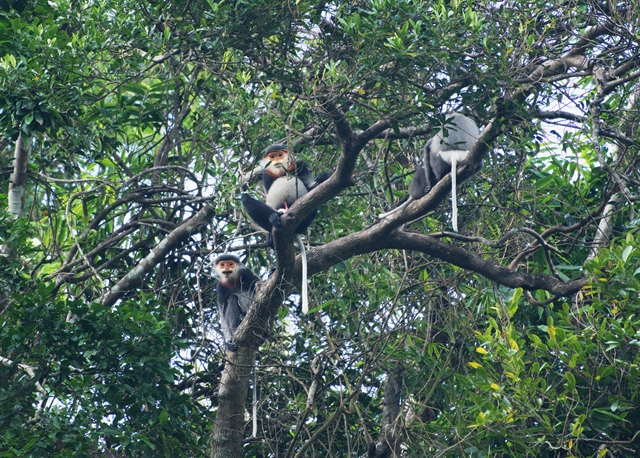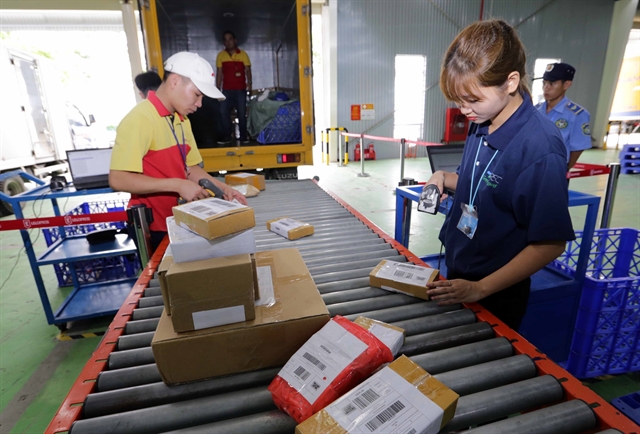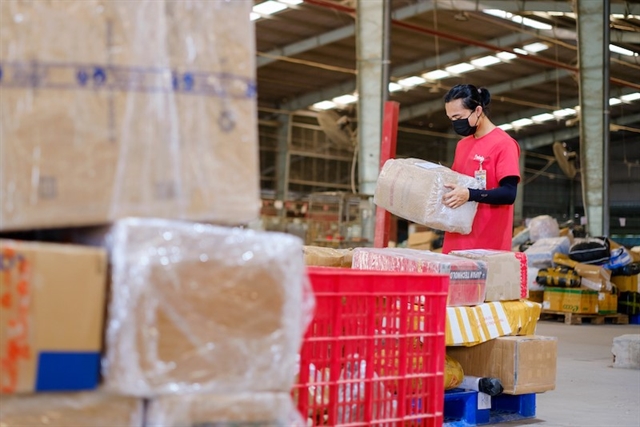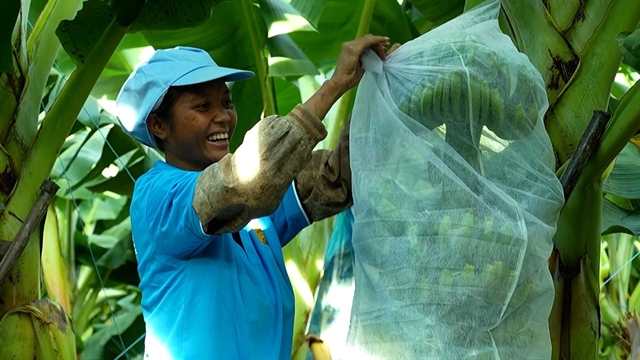 Environment
Environment

 |
| The shipment packaging required for every order placed online, even for smaller products, is causing pollution concerns. — VNA/VNS Photo |
HÀ NỘI — The boom of Việt Nam’s e-commerce is leading to rising concerns of ‘white pollution’ due to excessive non-biodegradable packaging, with experts urging greening efforts for sustainable economic growth.
Experts from the Vietnam E-commerce Association (VECOM) estimate that in 2023, the industry used up 332,000 tonnes of packaging, of which 171,000 tonnes were made of plastic.
Notably, 90 per cent of fashion, accessories and fast food traders use plastic bags and containers for shipments.
Head of the policy department at the Vietnam E-commerce and Digital Economy Agency (VECOM) Nguyễn Hữu Tuấn said that the sector is seeing an annual growth rate of over 25 per cent, which is expected to increase nearly five fold by 2030.
Notably, the amount of waste generated from e-commerce and online shopping is estimated to be at least five times as much as that from traditional trading.
“We tend to think that e-commerce means sitting at home, making calls and surfing the Internet and that should produce less waste than traditional shopping methods.
“However, this is a misconception, as an order of the smallest value possible already requires a shipping package made from cartons, plastic and sticky tape. Meanwhile, in traditional commerce, we can use fewer plastic bags and rarely need tape and carton boxes,” Tuấn told Tin tức (News) newspaper.
Most online sellers want to ensure that their goods reach customers in the best condition, he added, therefore they often wrap the products in multiple layers of sheets or line the shipping box with plastic air pillows.
Experts forecast that without better measures to address this packaging problem, the amount of plastic waste from e-commerce could reach 800,000 tonnes a year.
 |
| A worker sorts out shipments at a logistics distribution centre. — VNA/VNS Photo |
Statistics from the Ministry of Natural Resources and Environment show that only about 10 per cent of plastic waste is recycled.
Meanwhile, the e-commerce boom is mainly concentrated in coastal cities or areas along major rivers leading to the sea, such as HCM City, Hà Nội, Hải Phòng, Đà Nẵng, Huế, Cần Thơ and Nha Trang.
As most plastic waste from e-commerce is not collected, recycled or treated in an environment-friendly manner, there is a high probability that it ends up in the ocean.
Greening efforts
Facing this 'white pollution', several delivery and packaging companies have taken measures for a greener e-commerce industry.
Since October last year, delivery service provider J&T Express has introduced three million eco-bags at distribution centres to replace conventional plastic bags.
J&T Express Brand Director Phan Bình said: “In addition to these measures, we also put out initiatives that encourage consumers, shop owners and shippers to join in protecting the environment, such as measures to save energy while driving, or proper packaging methods to avoid excessive material use.
“We also collected 1.5 tonnes of plastic waste to recycle into sets of colourful tables and chairs, which are then donated to schools.”
 |
| Schoolchildren in Bắc Ninh Province play at the recycled tables and chairs gifted by J&T Express. — Photo courtesy of Liên Bão Primary School |
Meanwhile, Lazada Logistics Vietnam leverages an automatic packaging size determination system to reduce waste, in addition to using Forest Stewardship Council (FSC) certified packaging, recycling carton pieces as cushioning materials and using electric vehicles (EVs) for delivery.
Vietnam Post, considered the first postal service provider in the country to use EVs for shipping, has also reported reducing its CO2 emissions by 8.8 times from its efforts for more environment-friendly transport.
VECOM advisory council member Nguyễn Thanh Hưng said that many large corporations such as Lazada, Grab, Vietnam Post and J&T Express have been taking concrete actions in their green efforts, but reducing waste remains a major challenge for smaller businesses.
Moreover, e-commerce development strategies and related regulations are not focusing on environmental impacts, he added.
According to the Vietnam E-commerce and Digital Economy Agency (iDEA), sustainable e-commerce development requires the engagement of six groups in reducing plastic waste.
They are State management agencies, consumers, e-commerce, logistics and order fulfilment companies, business associations, sectors and professional social organisations, press and media agencies and others.
Priority should be given to policies that support waste reduction and environmental protection in e-commerce, as well as a guideline to identify green and sustainable businesses and models, encouraging environment-friendly delivery methods and recognising green initiatives in this sector.
The World Wide Fund for Nature also recommends an official inventory of plastic packaging, materials and tools in e-commerce starting this year, as all evaluations require reliable and comprehensive data. — VNS




